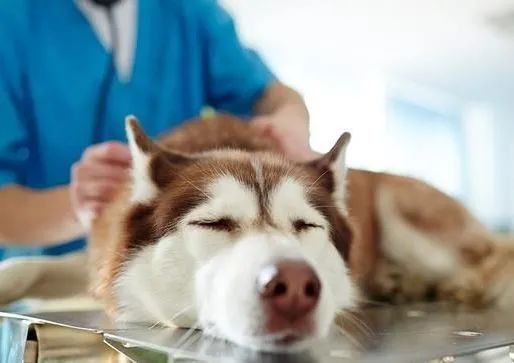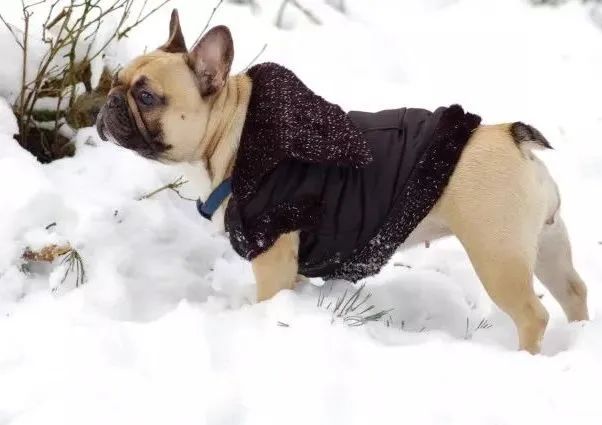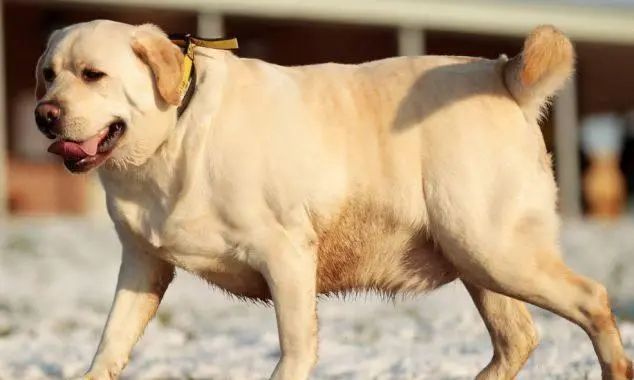Pet Science | Tips for Keeping Dogs in Winter
Pet Science | Tips for Keeping Dogs in Winter
As the temperature gradually drops, our beloved dogs may occasionally experience some physical discomfort. In this cold season, if we want our dogs to be healthy and energetic, as pet owners, we need to be more attentive! Today, the editor has compiled a list of winter dog-raising tips for everyone: What problems are prone to occur in dogs in winter? As a qualified pet owner, what should we do? Next, let's learn together!
-01-
Joint pain
Low temperatures in winter can make joint fluid thicker, causing joint flexibility to decrease and joints to become stiff. This stiffness not only reduces the flexibility of the dog's movements, but can also increase joint wear, which can cause or aggravate joint pain. As caring dog owners, we should:

1. Keep the room warm:
Make sure the dog's living environment is warm enough. You can use equipment such as heaters to maintain the indoor temperature and provide the dog with a comfortable resting space;
2. Avoid prolonged exposure to cold environments:
Reduce the time your dog spends outdoors in cold weather, especially in extremely cold or snowy weather. Try to avoid going out to prevent the joints from being stimulated by the cold.
3. Increase the amount of exercise for your dog appropriately:
Moderate exercise can promote blood circulation in the dog's joints, but avoid sudden and strenuous exercise;
4. Supplement fish oil appropriately:
Add appropriate amounts of fish oil to your dog’s three meals. Fish oil is rich in Omega-3 fatty acids, which can promote joint lubrication and relieve joint pain and inflammation!
-02-
Cold caused by catching a cold
Symptoms of a dog cold include: frequent sneezing, coughing, runny nose, lack of energy, loss of appetite, excessive sleepiness, etc. For dogs with weak resistance, even a small health condition may act as a catalyst and make their body worse.
Using a humidifier to create a warm environment or the gentle steam from a shower can help your dog breathe more easily. In addition, letting your dog drink plenty of water and providing some warm and easily digestible food can also relieve its discomfort to a certain extent. At the same time, please make sure that your dog is in a suitable warm environment and avoid cold stimulation, which is more conducive to the dog's recovery.

-03-
Burns or frostbite
Burns usually occur when dogs are in close contact with heating devices for a long time, such as electric heaters, electric blankets, etc. The high temperature surfaces of these devices may accidentally burn the dog's skin.
Frostbite often occurs when dogs are in a cold, damp or extremely low temperature environment for a long time. Such conditions will cause the dog's blood circulation to slow down, thereby damaging the skin and tissues.

Prepare a warm blanket or doghouse for your dog in winter. Try not to use electrical heating devices. Instead, consider using a thermos or hot water bottle, which is a safer way to keep warm. Whether it is a burn caused by improper use of heating equipment or frostbite caused by insufficient warmth, if the dog has serious symptoms such as redness, swelling, blisters or loss of consciousness, it should be treated immediately by a doctor for professional treatment and care.
-04-
Overweight, obesity
In winter, dogs tend to eat more food and get energy to resist the cold. To ensure the health of dogs, we should:
1. Strictly control diet and avoid overfeeding to prevent uncontrolled weight gain;
2. Exercise moderately. Although it is cold outside, moderate outdoor activities are the secret to keeping dogs energetic. Choose a sunny day and go out for fun with your dogs. Let them release energy while running and enjoy the beauty of winter.

-05-
Diarrhea and other gastrointestinal problems
Some dogs have relatively sensitive gastrointestinal systems. The low temperature in winter makes it easier for food to cool down quickly, which poses an additional challenge to the dog's digestive system. Imagine if we ate cold food, wouldn't we feel uncomfortable? The same is true for dogs. They may experience loss of appetite, vomiting, lack of energy, and even digestive system problems such as gastroenteritis after eating cold food. As a qualified pooper scooper, we should:

1. Try to provide dogs with warm and easily digestible food, which will help reduce the burden on their stomach and intestines and promote food digestion and absorption;
2. Feed with some warm soup. The soup is not only nutritious and easy to digest, but also provides extra water for the dog, helps maintain water balance in the body and promotes metabolism.
This tip covers everything from keeping warm to health management, from preventing joint pain to dealing with colds, to preventing burns and frostbite, as well as weight management and maintaining gastrointestinal health. Every detail is carefully considered for dogs. With it, I believe everyone can become the super poop-shoveling owner who takes the most caring care of their furry children!
Contact :Aine Fan
Shandong Lize Pet Products Co.,Ltd
TEL: +86 18553707508 WeChat: +86 18553707508 WhatsApp: +86 18553707508
Email:fanmingyue@lizechong.com ainefan@qq.com
ADD:Xiaomeng Town Industrial Park, Yanzhou District,Jining, Shandong
